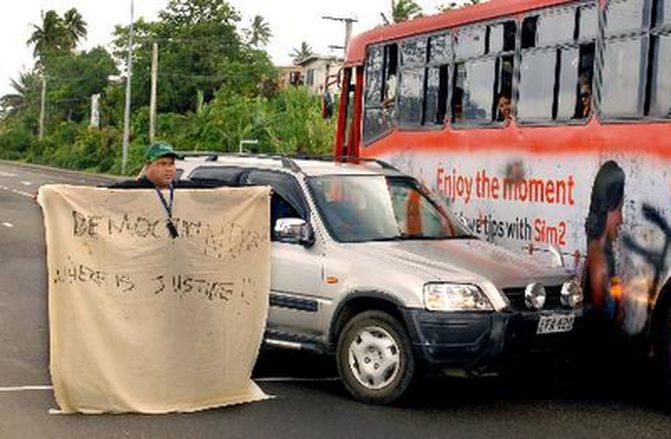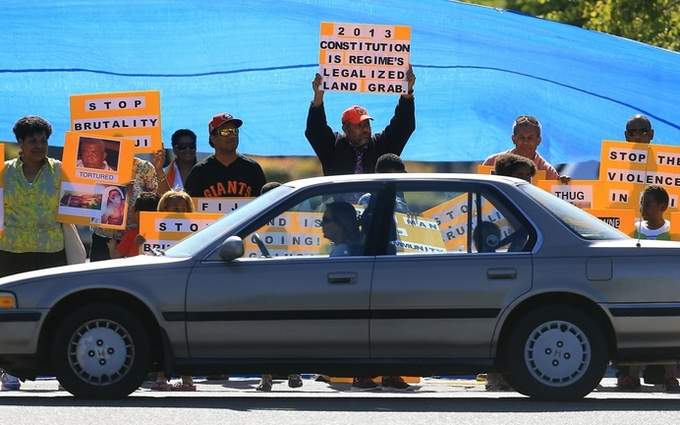The prime minister of Fiji attended a private dinner Friday night in Santa Rosa, where he was met by a vocal group of several dozen Fijian protesters, many of whom said they were denied access to the event.
Commodore Josaia Voreqe Bainimarama, also known as Frank Bainimarama, arrived in a motorcade of black vehicles just after 7 p.m. at the Finley Community Center's Person Auditorium.
Bainimarama's car passed about 50 demonstrators who held up signs that said “Free Fiji” and “Stop the Violence in Fiji” as it headed around the back of the auditorium, where he was escorted into the building to speak to a group of about 150 people, organizers said.
“He's here to spend time and visit with the Fiji people in this area,” said Ben Nawagauou of San Rafael, a childhood friend of Bainimarama, who helped organize the event. “Those people (the protesters) don't know what they're talking about. They don't know anything about him.”
Bainimarama seized power in a 2006 coup and in 2009, the country's constitution was abrogated. His actions have drawn the ire of native pro-democracy groups and led to the country's expulsion from the Commonwealth of Nations, an intergovernmental organization of former British colonies and territories.
Fiji is an archipelago of about 330 islands in the central Pacific Ocean. It became independent in 1970 under a parliamentary democracy, but since Bainimarama's coup, the country's fourth since 1987, there has not been a democratically elected government.
Bainimarama announced plans to hold elections in September, but leaders of an American-based pro-democracy movement called the Democracy and Freedom for Fiji Movement, who organized Friday's protest, say they doubt the elections will be held fairly.
“All we want is for him to step aside and allow our country to have free and fair elections,” said Vilisi Nadaku, 49, of Santa Rosa.
Several Fijians said they came expecting to attend the event, which was supposed to include a traditional meal followed by a speech and a question and answer session with Bainimarama, only to learn they would not be allowed inside.
“What are they scared of? The truth,” said Siteri Velia of Santa Rosa, part of a close-knit community of Fijian caregivers in Sonoma County.
“They don't want anybody to ask questions. This is not what Fiji is about,” Velia added.
Several protesters said they could not return to their homeland because they feared reprisal from the Bainimarama government.
Fijians on both sides of the issue said that in a country of less than a million people, many knew each other and the political crisis had pitted families and friends against each other.
“We are all one people, one family,” said Nawagauou. “In the end, that is what's important.”



